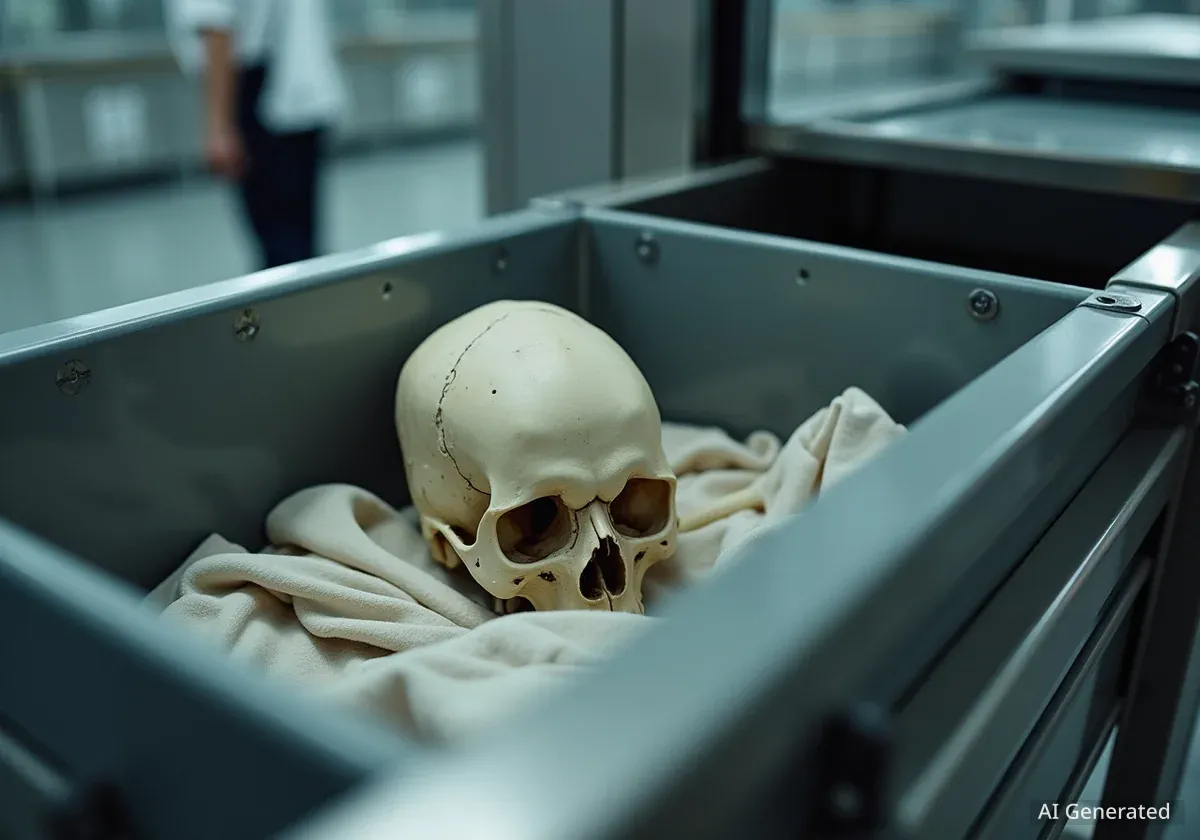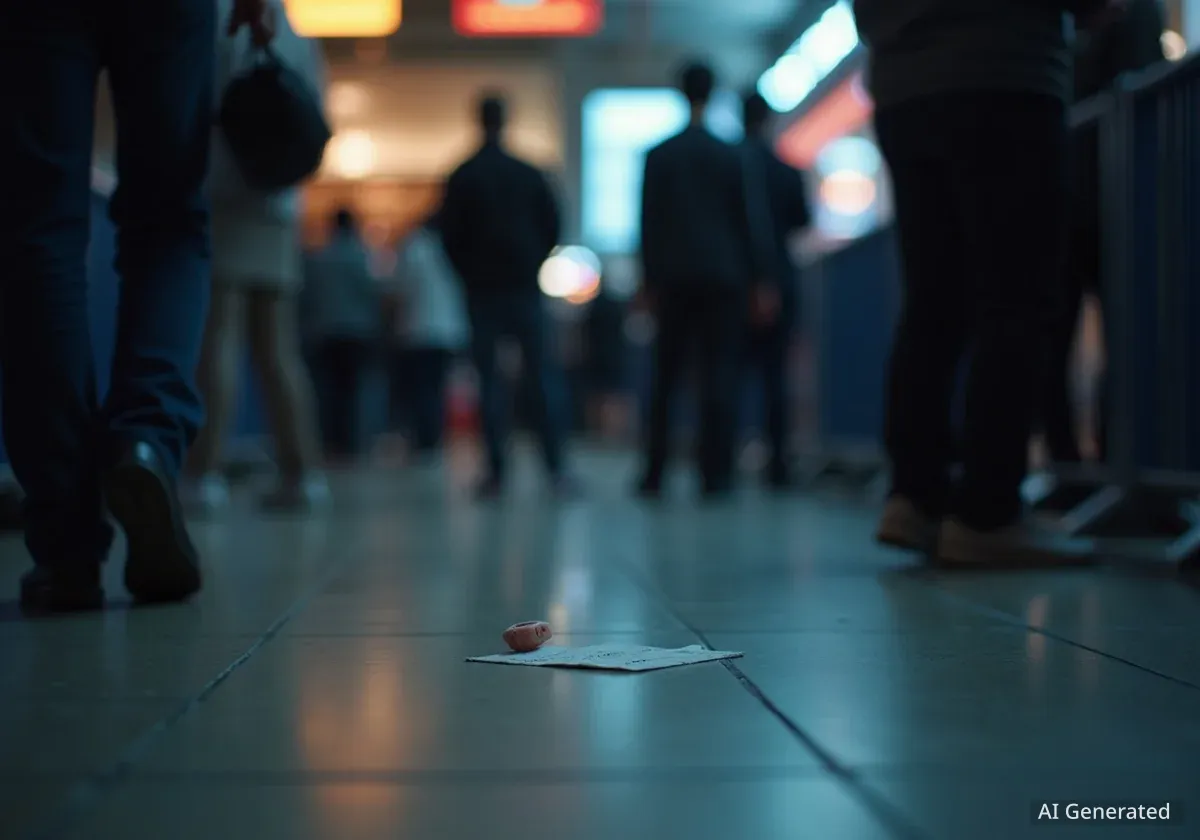Authorities at Tampa International Airport discovered a human skull and several bones inside a passenger's carry-on bag this weekend. U.S. Customs and Border Protection (CBP) officers made the finding during a routine inspection. The passenger stated the remains were for ritual use.
Key Takeaways
- Human skull and bones found in a carry-on bag at Tampa International Airport.
- CBP officers made the discovery during a routine baggage check.
- The passenger claimed the remains were for ritual purposes.
- CBP destroyed the remains due to potential health risks.
- Strict federal guidelines apply to traveling with human remains in the U.S.
Discovery at Tampa International Airport
U.S. Customs and Border Protection officers at Tampa International Airport encountered an unusual item in a passenger's luggage. During a routine baggage check, agents found what appeared to be human remains. The discovery included a human skull and several bones.
The items were wrapped in foil inside a duffel bag. This bag was part of a passenger's carry-on luggage. The incident highlights the varied nature of items encountered during airport security screenings.
Incident Details
- Location: Tampa International Airport, Florida
- Agency: U.S. Customs and Border Protection (CBP)
- Items Found: Human skull, several bones
- Packaging: Wrapped in aluminum foil
- Passenger's Claim: Remains intended for ritual use
CBP's Role in Interception
CBP Agriculture Specialists were conducting inspections when they found the remains. These specialists typically look for prohibited plants and undeclared items. In this case, they also uncovered undeclared cigars in the same luggage.
Carlos C. Martel, Director of Field Operations for CBP in the Miami and Tampa offices, shared details on social media. He confirmed the finding of "prohibited plants, undeclared cigars, and a foil-wrapped duffel bag containing what looked like human remains, including part of a skull."
"At CBP, we never know what baggage may hold, but smugglers should know we'll always have a bone to pick," Martel stated in a post on X, emphasizing the agency's vigilance.
Photos released by CBP showed the skull and vertebrae partially wrapped in aluminum foil. Other images depicted officers in gloves inspecting various seized items laid out in evidence bags on a table. This visual evidence underscored the nature of the discovery.
Health Risks and Federal Regulations
CBP determined that the bones posed significant health risks. Consequently, the remains were destroyed. Traveling with human remains into the United States is subject to strict federal guidelines designed to protect public health.
Background on Human Remains Travel
The Centers for Disease Control and Prevention (CDC) provides specific regulations for importing human remains. These rules are in place to prevent the spread of infectious diseases and protect individuals involved in handling the remains.
According to the CDC, individuals bringing remains into the U.S. must generally present a death certificate. Exceptions exist for cremated or embalmed remains. Furthermore, all non-cremated remains must be secured in a leak-proof container. This prevents the spread of potential pathogens during transit.
Public health agencies warn that blood and body fluids can pose risks to handlers, even if an infectious disease is not listed as the cause of death. This means that careful handling and proper containment are always necessary.
Specific CDC Guidelines
- Cremated remains: Generally permitted without special permission.
- Embalmed bodies: Generally permitted without special permission.
- Dry, sanitized bones: Typically allowed without special permission.
- Remains from infectious diseases: Require tighter rules if not embalmed or cremated, potentially needing a CDC import permit.
The CDC website clarifies that this requirement aims to protect the public, as well as federal, airline, and airport employees. It minimizes potential exposure to blood and other body fluids during the transportation, inspection, or storage of human remains.
While permits are not typically necessary for "clean, dry bones or bone fragments," the CDC advises that a permit might still be required. This applies if the remains are imported for "any purpose other than burial, entombment or cremation." The specific purpose of the remains in the Tampa incident, described as "ritual use," would likely fall under scrutiny for requiring such a permit.
Previous Airport Incidents
This incident at Tampa International Airport follows other notable seizures by CBP. Just weeks before, at Washington Dulles International Airport, CBP officers stopped a woman from allegedly smuggling nearly 59 pounds of marijuana overseas.
Authorities identified the individual as Aleshia Anne Pinheiro, 42, from Las Vegas. Officers seized drugs valued at nearly half a million dollars. Pinheiro faced felony narcotics charges following this interception. These events underscore the continuous efforts of CBP to enforce regulations and prevent illegal activities at U.S. airports.
Ongoing Investigation
As of now, no further details have been released regarding the passenger involved in the Tampa incident. Information such as the passenger's nationality or any potential charges has not been made public. Investigations into such discoveries are often complex and can involve multiple agencies.
The case serves as a reminder of the various challenges faced by airport security and customs personnel daily. Their work involves enforcing a wide range of regulations, from agricultural inspections to preventing the transport of dangerous or prohibited items, including human remains.





